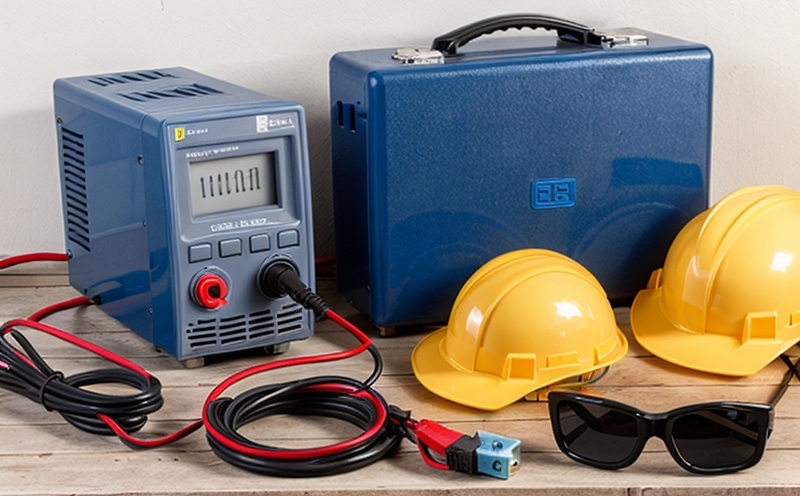Electrical Equipment Certification: Ensuring Safety and Compliance
As the world becomes increasingly dependent on electrical equipment, ensuring that these devices meet safety standards has become a top priority for manufacturers, regulatory bodies, and consumers alike. Electrical equipment certification is the process of verifying that electrical products comply with national and international safety standards, regulations, and directives. This article will delve into the importance of electrical equipment certification, the various types of certifications available, and the benefits and processes involved in obtaining these certifications.
What is Electrical Equipment Certification?
Electrical equipment certification is a third-party verification process that ensures electrical products meet specific safety requirements and performance standards. This process involves testing, evaluating, and verifying that the product complies with relevant regulations, directives, and industry standards. The primary objective of electrical equipment certification is to ensure public safety by preventing accidents, injuries, or fatalities caused by malfunctioning or inadequately designed electrical equipment.
Types of Electrical Equipment Certification
There are various types of electrical equipment certifications available, including:
UL (Underwriters Laboratories) Mark: UL is one of the most recognized and respected testing laboratories in the world. The UL mark indicates that a product meets certain safety standards and has been tested by an independent third-party laboratory.
ETL (Intertek) Certification: ETL certification is similar to UL certification, with the main difference being the scope and breadth of testing and evaluation services offered.
EN 60065 Certification: EN 60065 is a European standard for safety requirements for electrical equipment designed for household use. This certification ensures that electrical products comply with the EUs Low Voltage Directive (LVD).
CE Marking: CE marking is a mandatory conformity marking for electrical and electronic products placed on the European market. This mark indicates compliance with the Essential Health and Safety Requirements of the LVD.
Benefits of Electrical Equipment Certification
The benefits of electrical equipment certification are numerous and far-reaching, including:
Enhanced Product Credibility: Obtaining a recognized certification from a reputable testing laboratory enhances product credibility and reputation in the marketplace.
Compliance with Regulations: Certification ensures compliance with national and international regulations, directives, and standards, thereby reducing the risk of non-compliance fines and penalties.
Reduced Liability: Certified products reduce manufacturer liability by demonstrating that the product has been tested and evaluated to meet specific safety requirements.
Increased Sales Opportunities: Certified products can open up new sales opportunities in domestic and export markets, as well as with government agencies and contractors.
Detailed Process of Electrical Equipment Certification
The process of electrical equipment certification involves several steps:
1.
Product Testing: Products are tested by a certified testing laboratory to ensure compliance with relevant safety standards.
2.
Documentation Review: Manufacturers submit product documentation, including user manuals, instructions for installation and use, and technical specifications.
3.
Sampling Plan Development: A sampling plan is developed to determine the number of samples required for testing.
4.
Testing and Evaluation: Samples are tested and evaluated to ensure compliance with relevant safety standards.
Detailed Information on Certification Processes
Heres a detailed explanation of certification processes in bullet points:
UL Marking:
UL marks electrical products that meet specific safety requirements, including insulation, grounding, and overcurrent protection.
The marking process involves submitting product documentation and samples for testing and evaluation.
UL marks can be applied to a wide range of products, including household appliances, lighting fixtures, and electrical outlets.
EN 60065 Certification:
EN 60065 is a European standard that outlines safety requirements for electrical equipment designed for household use.
Certification involves testing and evaluation to ensure compliance with the standards requirements for insulation, grounding, and overcurrent protection.
Products certified under EN 60065 may display the CE mark, indicating compliance with the EUs Low Voltage Directive.
QA Section: Additional Information on Electrical Equipment Certification
1.
What is the primary objective of electrical equipment certification?
The primary objective of electrical equipment certification is to ensure public safety by preventing accidents, injuries, or fatalities caused by malfunctioning or inadequately designed electrical equipment.
2.
What types of products can be certified under UL Marking?
A wide range of products can be certified under UL Marking, including household appliances, lighting fixtures, and electrical outlets.
3.
Is CE marking mandatory for all electrical products sold in the EU?
No, CE marking is not mandatory for all electrical products sold in the EU. However, it is required for certain types of products, such as those that require a Safety Certificate or contain hazardous substances.
4.
How long does the certification process typically take?
The certification process can vary depending on the complexity of the product and the testing requirements involved. Typically, the process takes anywhere from several weeks to several months.
5.
Can certified products be used in countries outside of their origin?
Yes, certified products can be exported to other countries without requiring additional certifications or markings.
In conclusion, electrical equipment certification is a crucial step in ensuring public safety and compliance with national and international regulations. By understanding the benefits and processes involved in obtaining these certifications, manufacturers can enhance product credibility, reduce liability, and increase sales opportunities. The types of certifications available, including UL Marking, ETL Certification, EN 60065 Certification, and CE Marking, each have their unique requirements and application procedures.
By addressing the most frequently asked questions and providing detailed information on certification processes in bullet points, this article aims to provide a comprehensive resource for manufacturers seeking to obtain electrical equipment certifications.

































